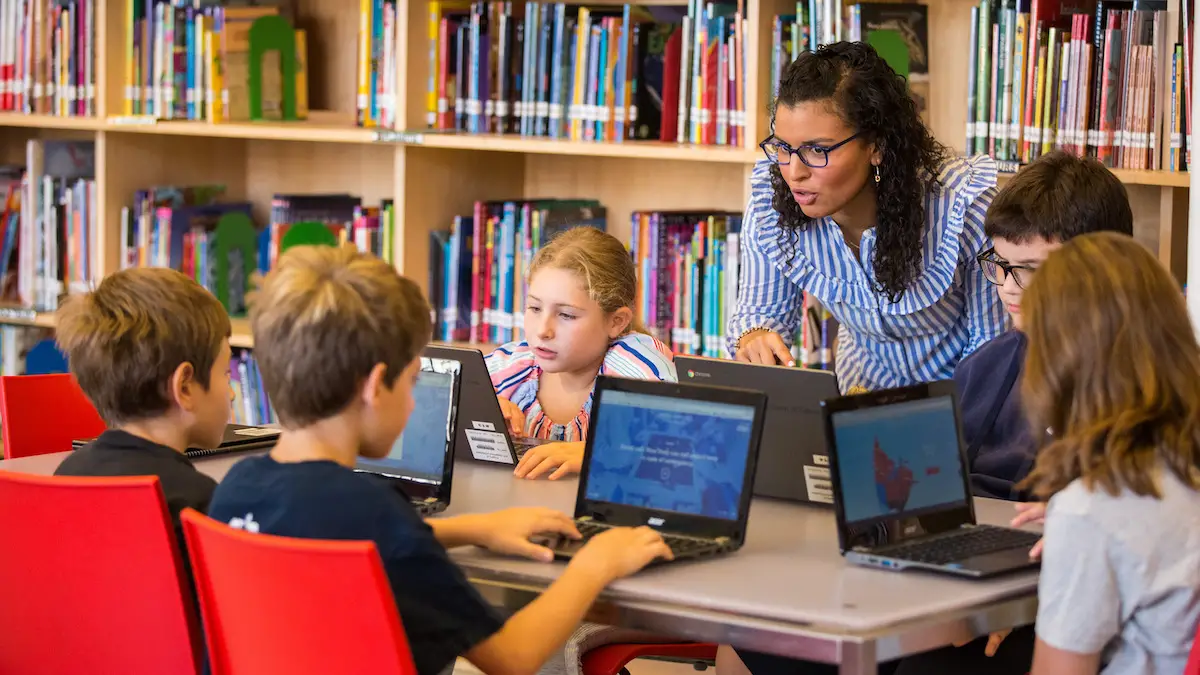In today’s educational landscape, the focus on student well-being is gaining increasing attention. Beyond academic achievement, educators and researchers recognize the importance of emotional & social learning of students. SEL programs have emerged as a powerful tool in promoting student well-being. This article explores the effects of social and emotional learning on student well-being, examining the benefits it brings to their emotional health, interpersonal relationships, academic performance, and overall life satisfaction.
Understanding Social and Emotional Learning (SEL)
In order to grasp the effects of social and emotional learning on student well-being, it is crucial to understand what SEL entails. SEL program is the process in which individuals develop and apply various social, emotional, and cognitive skills important to comprehend and monitor emotions, and build healthy relationships with others. SEL programs typically incorporate activities that develop self-realization, self-management, social awareness, and responsible decision-making.
Enhancing Emotional Health and Resilience
One of the key effects of SEL on student well-being is the enhancement of emotional health and resilience. SEL programs provide students with the tools to recognize and understand their emotions, regulate their responses, and effectively cope with stress and adversity. By developing emotional intelligence and resilience, students are better equipped to navigate challenges, build positive self-esteem, and maintain mental well-being.
Online Classes and SEL
The advent of online classes has provided a unique platform to integrate social and emotional learning into education. Online classes offer opportunities for self-reflection, as students have more independence in managing their learning environment and schedules. Additionally, virtual classrooms can foster a supportive and inclusive atmosphere where students from diverse backgrounds can collaborate and communicate effectively. And if students feel any difficulty in their online classes, they can pay someone to take my online class to ease the burden of their studies.
Improving Interpersonal Relationships and Empathy
Social and emotional learning programs also significantly impact the quality of interpersonal relationships among students. Through SEL, students learn effective communication, active listening, and conflict-resolution skills. They develop empathy and understanding of the perspectives and feelings of others. These skills foster positive relationships, reduce bullying and aggression, and create a supportive and inclusive school environment. Improving their social interactions, students experience a sense of belonging and connectedness, contributing to their overall well-being.
Boosting Academic Performance and Motivation
Contrary to the misconception that social and emotional learning detracts from academic pursuits, research indicates that SEL programs actually enhance academic performance and motivation. When students feel emotionally secure and connected, they are more engaged in the learning process. SEL equips students with skills such as self-regulation and goal-setting, improving their ability to manage time, concentrate, and persevere in the face of challenges. As a result, students who participate in SEL programs often exhibit higher academic achievement and increased motivation to succeed.
Fostering Positive Behavior and Ethical Decision-making
Another significant effect of social and emotional learning is promoting positive behavior and ethical decision-making among students. SEL programs emphasize responsible decision-making, considering ethical implications and the impact of choices on oneself and others. Developing a strong moral compass and values makes students more likely to make responsible and ethical decisions inside and outside the classroom. It cultivates a positive school climate, reduces disciplinary issues, and promotes a safe and supportive learning environment.
Cultivating Life Satisfaction and Well-being
Ultimately, the effects of social and emotional learning on student well-being extend beyond the academic realm. SEL programs profoundly impact students’ overall life satisfaction and well-being. SEL fosters a sense of self-fulfillment, happiness, and resilience by equipping students with the necessary skills to navigate challenges, manage emotions, and build positive relationships. Students who participate in SEL programs increasing level of self-esteem, decreasing levels of anxiety and depression, and a greater sense of purpose and fulfillment in their lives.
Improved Conflict Resolution Skills
Social and emotional learning also positively affects students’ ability to navigate conflicts and constructively resolve them. SEL programs teach students effective communication, active listening, and problem-solving skills, enabling them to address conflicts peacefully and find mutually beneficial solutions. By developing these skills, students become more adept at managing disagreements, reducing hostility, and fostering a cooperative and respectful environment. Improved conflict resolution skills contribute to a positive school climate, stronger student relationships, and enhanced overall well-being.
Enhanced Emotional Regulation and Coping Strategies
Social and emotional learning equips students with the necessary tools to regulate their emotions and develop healthy coping strategies. SEL programs teach students techniques for managing stress, anxiety, and other negative emotions. By understanding and acknowledging their emotions, students can respond to challenging situations in a more balanced and adaptive manner. They learn to identify triggers, utilize relaxation techniques, and seek support when needed. By developing effective emotional regulation and coping strategies, students experience improved mental health, reduced emotional distress, and overall well-being.
Increased Empathy and Social Responsibility
Another effect of social and emotional learning is cultivating empathy and social responsibility among students. SEL programs focus on developing students’ ability to understand and empathize with the experiences and perspectives of others. Through activities and discussions that promote empathy, students learn to appreciate diversity, show kindness, and engage in acts of compassion. They develop a sense of social responsibility, recognizing their role in creating positive change in their communities and society.
By fostering empathy and social responsibility, social learning encourages students to contribute to the well-being of others actively. They develop a sense of connectedness and concern for the welfare of their peers, teachers, and community members. It enhances their interpersonal relationships and instils a sense of purpose and fulfillment as they realize the positive impact they can have on the lives of others.
The effects of social and emotional learning on student well-being are profound and far-reaching. By incorporating SEL programs into educational curricula, schools empower students with skills and competencies that promote emotional health, positive interpersonal relationships, academic success, and overall life satisfaction. Social and emotional learning provides students with the tools they need to navigate the complexities of emotions, build strong relationships, make responsible decisions, and thrive academically and personally.



